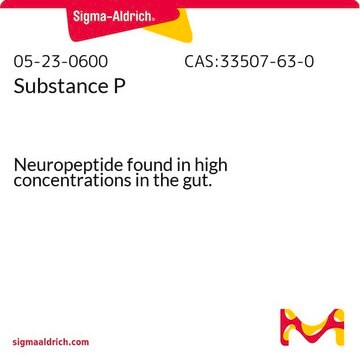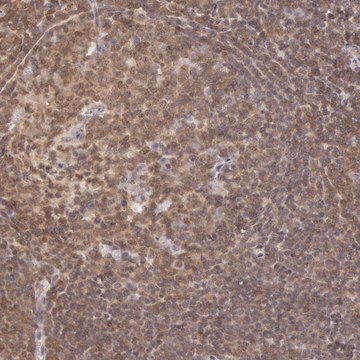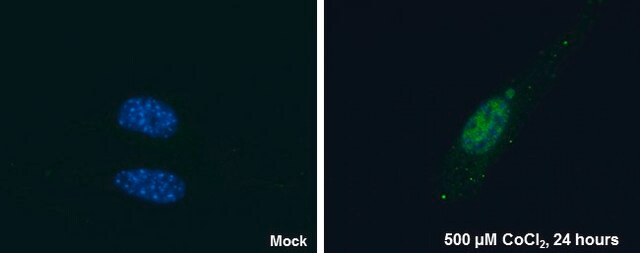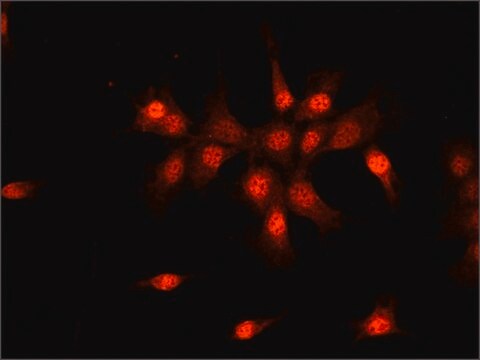Fontos dokumentumok
SAB4200383
Anti-SMAD6 (C-terminal) antibody produced in rabbit
~1.0 mg/mL, affinity isolated antibody
Szinonimák:
Anti-MADH6, Anti-MADH7, Anti-SMAD family member 6
About This Item
IP
WB
indirect immunofluorescence: 10-20 μg/mL using mouse 3T3 cells.
western blot: 0.5-1.0 μg/mL using whole extracts of HEK-293T cells over-expressing human SMAD6.
Javasolt termékek
biológiai forrás
rabbit
Minőségi szint
konjugátum
unconjugated
antitest forma
affinity isolated antibody
antitest terméktípus
primary antibodies
klón
polyclonal
Forma
buffered aqueous solution
molekulatömeg
antigen ~60 kDa
faj reaktivitás
mouse, human, rat
koncentráció
~1.0 mg/mL
technika/technikák
immunoprecipitation (IP): 5-10 μg using lysates of HEK-293T cells over-expressing human SMAD6.
indirect immunofluorescence: 10-20 μg/mL using mouse 3T3 cells.
western blot: 0.5-1.0 μg/mL using whole extracts of HEK-293T cells over-expressing human SMAD6.
UniProt elérési szám
kiszállítva
dry ice
tárolási hőmérséklet
−20°C
célzott transzláció utáni módosítás
unmodified
Géninformáció
human ... SMAD6(4091)
mouse ... Smad6(17130)
rat ... Smad6(374096)
Általános leírás
Immunogén
Biokémiai/fiziológiai hatások
Fizikai forma
Jogi nyilatkozat
Nem találja a megfelelő terméket?
Próbálja ki a Termékválasztó eszköz. eszközt
Tárolási osztály kódja
10 - Combustible liquids
Lobbanási pont (F)
Not applicable
Lobbanási pont (C)
Not applicable
Válasszon a legfrissebb verziók közül:
Analitikai tanúsítványok (COA)
Nem találja a megfelelő verziót?
Ha egy adott verzióra van szüksége, a tétel- vagy cikkszám alapján rákereshet egy adott tanúsítványra.
Már rendelkezik ezzel a termékkel?
Az Ön által nemrégiben megvásárolt termékekre vonatkozó dokumentumokat a Dokumentumtárban találja.
Tudóscsoportunk valamennyi kutatási területen rendelkezik tapasztalattal, beleértve az élettudományt, az anyagtudományt, a kémiai szintézist, a kromatográfiát, az analitikát és még sok más területet.
Lépjen kapcsolatba a szaktanácsadással








